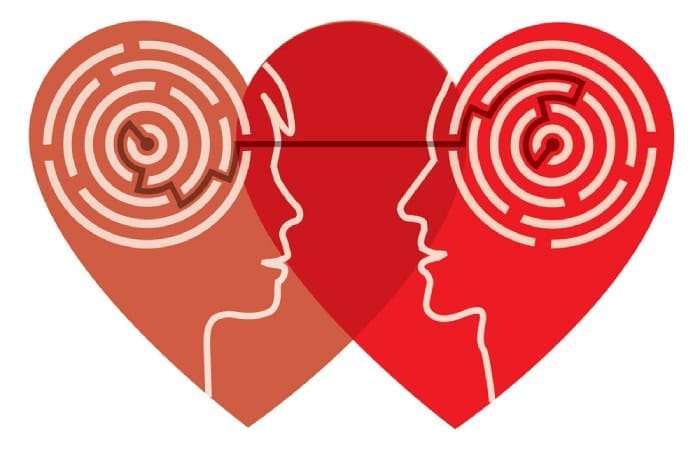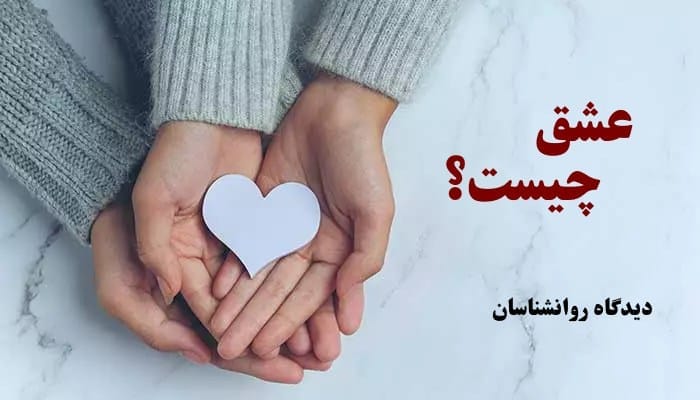Love means an intense affection that surpasses normal boundaries, becoming so apparent that even an outsider can recognize this excessive liking. Love is often misunderstood and mistakenly used to describe an over-being fondness for anything, which is incorrect. In nature, a mother’s love for her child is often considered excessive, although it’s fundamentally different from true love, represented by the letters L, O, V, and E.
فهرست عناوین
ToggleThe True Meaning of Love
True love is the emotional and psychological connection between two rational, logical, and sensible humans that ultimately aims at establishing a sexual relationship, which inherently ensures the species’ survival. Love is a primary motivator for mate and partner selection among humans. Just as a person in a desert with intense thirst has a strong desire to drink water, love creates a similar urge, leading a person to seek sexual relationships for the continuity of the species. A thirsty person in a desert experiences a different pleasure compared to someone who drinks water under normal circumstances. Hence, engaging in a sexual relationship after experiencing love gives multiple times more satisfaction to a person. A valid and healthy love typically happens once in a lifetime and rarely repeats.

Theories of Love
In family psychology, there are two theories for examining love:
- Existential Theory
- Evolutionary Psychology Theory
Existential Theory
Founded by American psychiatrist Irvin D. Yalom, existential theorists believe that humans are solitary creatures. They are born alone, live alone, and die alone. However, to ease the hardships of this path, they need a relationship to escape solitude.
Evolutionary Psychology Theory
This theory views love as a necessary need. According to this theory, love is a driving force for humans to transfer their genes for survival in nature, suggesting that it is through love that humans engage in relationships for survival. This theory investigates the role of hormones in the body. Hormones create a need for a sexual relationship, making such connections both physically and psychologically essential for humans, with problems arising if this need is unmet. (As the great Plato said, The god of love lives in need.)
Love generates motivation, need, and unrest in humans, prompting them to engage in sexual relationships for the continuation of their lineage. Love is a material, physical, scientific, testable, and accessible phenomenon. Love is probably a physical and scientific phenomenon. The common saying that love blinds and deafens an individual can also be tested and proven. There is a part of the brain known as the Ventral Tegmental Area (VTA) responsible for needs, wants, and desires. Dopamine, the hormone of pleasure and love, is produced here and distributed to other brain parts.

The Analogy of Love
Consuming drugs like cocaine excessively activates this part of the brain, leading to high dopamine levels and the experience of pleasure. When we analyze the MRI of a person in love, we can see that the VTA part of the brain is notably more active than other areas. Both a person in love and someone who has consumed drugs has an equally active VTA due to high dopamine secretion. Hence, we can say that love is a form of addiction—although, in love, the addiction is mental and emotional, whereas, in drug addiction, it is physical and substance-based. At this stage, individuals experience a kind of obsessive thought pattern; dopamine stimulates the brain toward achieving the beloved, much like it is stimulated to obtain drugs. When a lover fails to reach their beloved, the need becomes more intense (a similar mechanism occurs as in cases of addicts not receiving drugs). Love can control decision-making, willpower, and other cognitive functions of the mind.
Suggested article: Relationship mistakes
Helen Fisher’s Perspective on Mate Selection
According to Helen Fisher, three mental frameworks for mate selection exist in humans:
- Sexual Arousal System
- Romantic Love Feeling
- Attachment Feeling to a Partner
Sexual Arousal System: Drives humans towards choosing a mate but doesn’t ensure fidelity; alone, it results in promiscuity. Romantic Love Feeling: Besides sexual arousal, it propels humans forward with more motivation, binding them to one person and preventing promiscuity. Attachment Feeling: Beyond sexual arousal and romantic love that includes fidelity, this feeling ensures the longevity and continuity of relationships.

Interest-Based Love
Loves based on interests are desire-driven, and if we don’t fulfill these desires, they can lead to certain illnesses, thus called interest-driven love, resulting in sickness. The recognition of this type of love: This love is desire-oriented, dependent on fulfilling specific inner cravings within the framework of a transaction. Meaning, “I love and give affection in exchange for receiving love… I invest and expect services in return.” This type of relationship is a low-grade love; someone gives affection to receive it back. When someone loves and doesn’t get a response, feeling hatred afterward indicates that their love was interest-based, not true love, but something the general public pursues. In such love, two individuals involved lack something. One lacks affection and the other attention. These individuals mistakenly engage in what they call love with their empty vessels, interacting but ultimately hurting and harming each other over time.
Suggested article: What is the release schema?
Degrees of True Love
True love has several stages:
Self-Oriented Love
First, one must know oneself and love oneself as intensely as one can love another. Enjoy solitude with oneself. The person who loves himself enjoys their company and yearns for conversations and solitary times with themselves. When you fill your inner vessel with self-love, you can love others in the next step. Love Directed at Others: When you overflow with self-love, your love spills into others’ vessels. Such an individual is internally fulfilled and can love everyone equally, free from judgment, and interact without malice with all humanity. You enjoy being around such a person and feel peace in their presence. They love others so much that their vessel fills up to share attention and affection with the universe.
Love Directed at Existence
A person reaching this stage delights in being alive, enjoys living in this world, and expresses love and interest in everything they observe, whether that thing is an ant or a human. Passing this stage of love leads to the next stage, which is absolute perfection.
Love Directed at God
In this stage, humans typically experience a unique kind of mystical ecstasy (note that this isn’t pathological, and very few achieve this stage, like the great poets Khayyam and Hafez). This type of love is love toward the creator of all beauty, the creator of this existence. A person reaching this stage, regardless of any religion or faith, loves the creator and will possess numerous virtues.
Free consultation
With experienced psychotherapists, Sepidaran Ravan complex offers face-to-face and non-face-to-face psychotherapy services in a professional manner.
Contact our experts for free consultation and reservation of consultation sessions.
Phone: 02165683796

